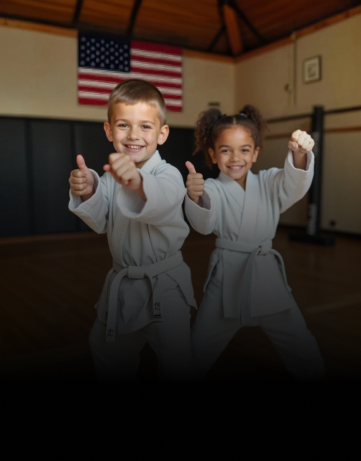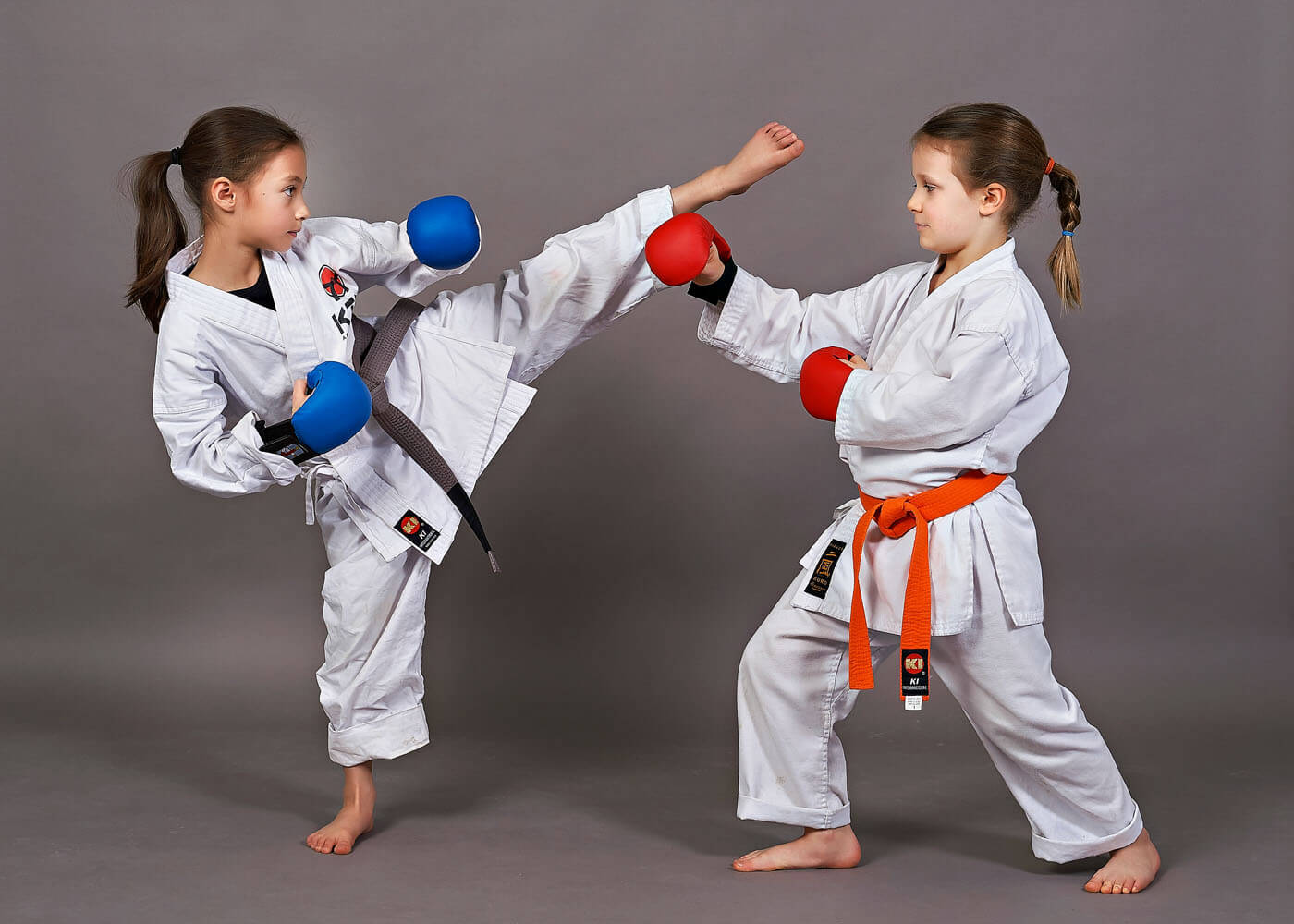Martial Arts for Kids – More Than Just Physical Moves, It’s Life Skills
How Karate for Kids Can Increase Self-confidence and Discipline in Young Martial Artists
Karate for youngsters offers a distinct opportunity to develop confidence and technique in young martial musicians. As they learn new techniques and face challenges, they not just obtain skills but likewise create a strong sense of self-worth. This structured atmosphere urges them to value the journey of improvement. How does this training translate into their everyday lives? Discover the deeper connections that make karate even more than simply a sporting activity.
The Relevance of Self-confidence in Childhood Development
Confidence is a vital structure block in youth development. When you nurture your child's self-confidence, you empower them to face challenges, take risks, and share themselves freely. Kids with confidence are much more going to discover brand-new tasks and social circumstances, which can cause enduring friendships and beneficial experiences.Encouraging your child to tip out of their convenience zone fosters strength. They learn that failing isn't the end however instead a tipping rock to success. By commemorating their success, despite just how tiny, you assist them acknowledge their abilities and worth.In this journey, assistance and favorable support from you play a crucial function. Whether it's through appreciation or merely being existing, your involvement boosts their self-confidence. As they expand, this self-assurance becomes a long-lasting property, equipping them to browse both difficulties and opportunities with a solid sense of self.
Exactly How Karate Instructs Self-control and Focus
Karate assists you develop technique and emphasis through its structured training program. As you practice mindfulness during each session, you'll find out to concentrate far better both on and off the mat. And also, establishing and achieving goals in karate reinforces your capability to remain committed and alert.
Structured Training Routine
While you take part in karate training, you'll swiftly discover exactly how an organized program infuses self-control and focus in young practitioners. Each class follows a details style, including warm-ups, method method, and sparring. This consistency educates you to appreciate the procedure and commit to renovation. As you learn types and strategies, you develop a sense of responsibility for your own progress.The organized setting urges you to set goals, whether grasping a brand-new belt or developing a kata. You'll find that staying concentrated throughout drills and classes develops your concentration. The self-control you grow in martial arts extends past the dojo, favorably impacting your schoolwork and everyday regimens. Each session enhances the importance of commitment, assisting you turn into a much more self-displined person.
Mindfulness in Practice
As you practice karate, you'll locate that mindfulness comes to be a vital component of your training. Each relocation needs your complete focus, helping you remain concentrated on the existing minute. You'll discover to ignore disturbances and focus on your breathing, motions, and intentions. This enhanced awareness hones your reflexes and enhances your discipline.During sparring or types, you'll uncover the relevance of being psychologically existing - Karate Salisbury MD. You'll notice how this focus not just enhances your method but likewise builds your self-confidence. By exercising mindfulness in martial arts, you cultivate persistence and resilience, important characteristics that extend past the dojo. This way, karate educates you to harness your mind, assisting you create a disciplined method to challenges both on and off the floor covering

Objective Setup Techniques
Establishing goals in martial arts isn't practically earning belts; it's an effective way to grow technique and emphasis. When you set specific, achievable targets, you develop a roadmap for your development. Rather of simply aiming to boost your kicks, try concentrating on understanding a particular method each month. This strategy maintains you motivated and engaged.Breaking down bigger goals into smaller, manageable actions helps you track your progress and commemorate tiny victories in the process. Whether it's improving your stance or raising your sparring endurance, every goal enhances your commitment. As you attain these goals, you'll construct confidence in your abilities and develop a solid sense of technique that extends past the dojo into daily life.
Structure Durability Via Martial Arts
Martial arts, specifically karate, uses kids a special opportunity to develop strength in a helpful setting. In classes, they deal with obstacles that push their limitations, whether it's sparring or mastering a new technique with a partner. Each problem, like a missed out on kick or a shed match, ends up being an opportunity to find out and grow.As they practice, youngsters learn to welcome discomfort and keep attempting, even when things obtain tough. They discover that failing isn't completion; it's component of the journey. This attitude helps them recover more powerful, not simply in the dojo, yet in day-to-day life.With each obstacle they get over, your youngster develops confidence in their ability to tackle obstacles, sustaining their resolution. With karate, they'll understand that resilience isn't practically physical stamina; it has to do with psychological grit and determination, empowering them to face whatever life throws their method.
The Duty of Respect in Martial Arts Training
Respect is a fundamental concept in karate training, cultivating a culture of technique and camaraderie among students. When you step onto the dojo floor, you're not just finding out strategies; you're also discovering to respect your instructors, peers, and the art itself (Karate Salisbury MD). Bowing at the beginning webpage and end of class isn't simply a formality; it symbolizes your acknowledgment of others' initiatives and dedication.As you develop common regard, you'll locate it improves your discovering experience. You'll pay attention extra attentively to your trainer and gain insights from fellow students. This environment encourages useful objection and support, allowing everyone to grow together.Moreover, respect cultivates self-discipline. Recognizing the value of effort and humility aids you stay focused on your training. In turn, this respect equates right into your day-to-day life, improving your communications and partnerships outside the dojo. Through martial arts, you discover that regard is essential for personal development and area structure
Accomplishing and establishing objectives Success in Martial arts

Social Skills and Teamwork in the Dojo
While training in the dojo, kids naturally establish vital social abilities and team effort capabilities. As they exercise together with peers, they find out to interact properly, share space, and assistance one an additional. Each course presents chances for collaboration, whether it's throughout partner drills or team workouts. This team effort cultivates friendships and develops a feeling of belonging, making the dojo a nurturing environment.Kids additionally acquire important problem resolution skills. When they experience difficulties, such as disagreements during sparring, they discover to navigate these circumstances constructively. They practice persistence and empathy, comprehending that everyone has various staminas and weaknesses.Moreover, joining team activities cultivates a sense of liability. You'll see your child finding out to count on colleagues and take obligation for their role in a group. These experiences not only improve their fighting styles trip but additionally equip them with social devices they'll lug right into various other locations of life.

The Long-Term Advantages of Martial Arts Beyond Youth
As children mature and change into adulthood, the benefits of karate expand much past the dojo. You'll find that the self-control and emphasis found out via karate can equate right into your scholastic and specialist life. Setting and attaining objectives in fighting styles cultivates a strong job ethic, which can press you to succeed in any type of endeavor.Moreover, the self-confidence acquired from competing and understanding methods can enhance your self-esteem, helping you tackle challenges head-on. This resilience becomes important as you face the uncertainties of adulthood.Additionally, the social abilities developed with teamwork and friendship in the dojo can cause much better partnerships in both professional and personal rounds. You'll discover to connect properly, resolve disputes, and construct a supportive network.Ultimately, karate forms not simply proficient martial musicians, but all-round people prepared to handle the globe.
Frequently Asked Questions
What Age Is Finest to Start Martial Arts for Kids?
You can begin martial arts as very early as age 4 or 5, however it typically depends on your youngster's maturity and rate of interest. Discovering a course that matches their age and power level makes a big distinction.
Exist Any Health Conveniences From Practicing Martial Arts?
Yes, practicing karate deals numerous wellness advantages. You'll enhance your stamina, flexibility, and sychronisation while improving cardio fitness. And also, it enhances focus and psychological health, making it a great selection for overall physical and mental health and wellness.
Just How Often Should Kids Attend Karate Courses?
You should motivate your youngsters to attend karate courses a minimum of 2 to 3 times a week. Consistency assists click here to read them discover methods effectively and establish abilities, making their experience extra satisfying and satisfying in the future.
Can Karate Assist With Taking Care Of Anxiety in Children?
Yes, martial arts can assist take care of anxiousness in youngsters. It teaches focus and self-discipline while offering a secure outlet for energy. You'll discover your child growing a lot more calm and confident as they exercise on a regular basis.
What Gear Is Required for Children Starting Martial Arts?
